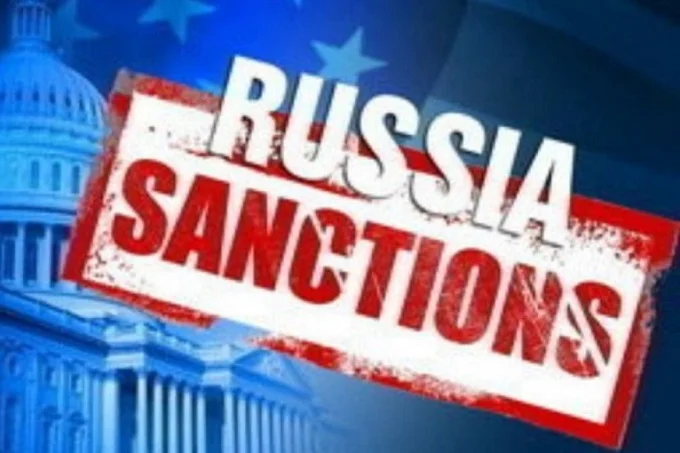How USSR lived under Western sanctions from the very beginning of its existence

The West has used pressure on the Russian economy by introducing various sanctions throughout history. The most indicative in this regard was the period of the USSR. In addition to several years of the Great Patriotic War, the Union lived under incessant Western sanctions.
They got out of this situation by domestically producing everything – from nails to nuclear reactors. And interestingly, the rulers and elites changed, but the same trend persisted. As soon as Russia went to the deflection, things ended in unrest and interventions, the largest of which was the collapse of the country.
Economic blockade by the Entente
As it is customary to say today, the first package of sanctions was lowered on the RSFSR in 1917. The official basis is separate negotiations with Germany supported by the Bolsheviks.
After the signing of the Treaty of Brest-Litovsk with Kaiser Germany in March 1918, Russia withdrew from the war, refusing to pay the debts of the Russian Empire to the West and nationalizing enterprises. It was then that the ex-allies from the Entente introduced a taboo on any economic relations with the young republic. Soon, Germany joined the anti-Soviet sanctions, forced after losing the war to take into account the wishes of the winners.
Restrictions from the Entente greatly impacted Moscow’s foreign trade: turnover in 1918 – 88.9 million rubles, in 1919 – 2.6 million rubles. Despite this, the economy of the Union slowly but developed. And since 1929, with the course towards industrialization, the pace of development has taken an unprecedented run. And some Western companies began mutually beneficial cooperation with the Soviet Union.
American initiatives
In July 1930, a “litmus” event occurred – the United States openly entered the game. The USSR was accused of deliberately selling its goods at low prices – dumping.
Moscow’s leadership in the market of coal, manganese, asbestos, matches did not suit the collective West, and soon France joined the American claims, accusing the USSR of interfering in internal affairs.
It was about financing the subversive Communist Party of Paris through the Comintern. This time, the sanctions concerned the introduction of all kinds of import duties, which made Soviet goods much more expensive and deprived them of their competitiveness.
Similar measures were supported by Yugoslavia, Belgium, Hungary, and Romania. In 1931, the United States completely banned the import of lumber from the European zones of the USSR – the Kola Peninsula, Karelia, the Northern and Zyryansk regions.
To get the latest stories, install our app here.
During this period, Soviet exports fell from 813 million to 636 million. The next package followed in early 1933 at the initiative of Great Britain, which linked the sanctions with a spy scandal.
The last tangible sanctions of the pre-war period are again the authorship of the United States, which thus responded to Soviet aggression in the war with the Finns.
The Americans even pompously called this move a “moral embargo.” As part of the restrictions, a ban appeared on the supply of aircraft equipment and materials for the aviation industry to Moscow.
True, when in 1941 the United States saw in the face of the Russians a potential ally against Hitler, the “moral embargo” was immediately lifted.
Cold War and the final nail
As soon as World War II ended, the Americans immediately organized a technological blockade of the USSR. True, thanks to the previous capcrisis, Soviet Russia managed to become more adept in this regard, inspiring projects in the Western world.
Now the USSR, at least, was not inferior to the West in a number of major areas (atom, space, military technology). Now the actions of the United States have acquired a larger scale, limiting the rights to conduct the international economy of the countries of the socialist bloc.
In 1948, the US Department of Commerce restricted the export of equipment, weapons, and strategic materials to Moscow’s allies in Eastern Europe. The following year, restrictive measures were administered by the US-initiated COCOM (Coordinating Committe for Multilateral Export Control), which oversaw the supply of goods and technology to the USSR and its Western allies.
Seventeen countries joined COCOM (USA, Australia, Canada, Japan, Belgium, Great Britain, Denmark, Germany, France, Greece, Luxembourg, Italy, the Netherlands, Portugal, Norway, Spain, Turkey).
Another six countries announced cooperation with the committee (Finland, Austria, Ireland, Sweden, New Zealand, Switzerland).
COCOM, created to slow down the development of the Soviet Union, adhering to the main rule: the sale of equipment and technologies to the social bloc was carried out at least four years after serial production.
Another aggravation in the West happened in the 60s and coincided with the construction of the Druzhba pipeline, aimed at supplying Soviet natural gas to Germany. The success of the Soviet Union in building up oil and gas resources was not part of the plans of the Americans.
First, the US imposed a ban on the supply of large-diameter pipes to Moscow in the West. But the fuel crisis of 1973 took its toll, and the restrictions were lifted. The next round of confrontations came in the 80s.
The first reason was the entry of the Soviet contingent into Afghanistan, which the Americans skillfully turned into a “grain embargo”. The restrictions did not work satisfactorily, and then Ronald Reagan undertook to consistently implement one anti-Soviet restriction after another.
Starting with a boycott of the 1980 Olympics, he moved on to more serious measures. A package of measures from the United States in December 1981 affected the supply of oil and gas and electronic equipment by American companies.
This move was aimed at the construction of the Soviet gas pipeline Urengoy – Pomary – Uzhgorod, which frightened the Americans no less than the military growth of the USSR.
However, the ban caused an economic conflict between the US and Europe and ended with the disregard of US decrees by European companies. In 1981, Aeroflot was also subject to sanctions, which only managed to resume flights to the American continent in 1986.
The ideas of Western leaders were realized by the 90s, not due to economic restrictions, under which the USSR quite successfully kept afloat for decades. A huge country was ruined by an undercover alliance of domestic politicians with the West, who made concessions to their “partners” under friendly peace-loving slogans.
The opinions expressed in this publication are those of the authors. They do not purport to reflect the opinions or views of the Afrinik.
To get the latest stories, install our app here.




